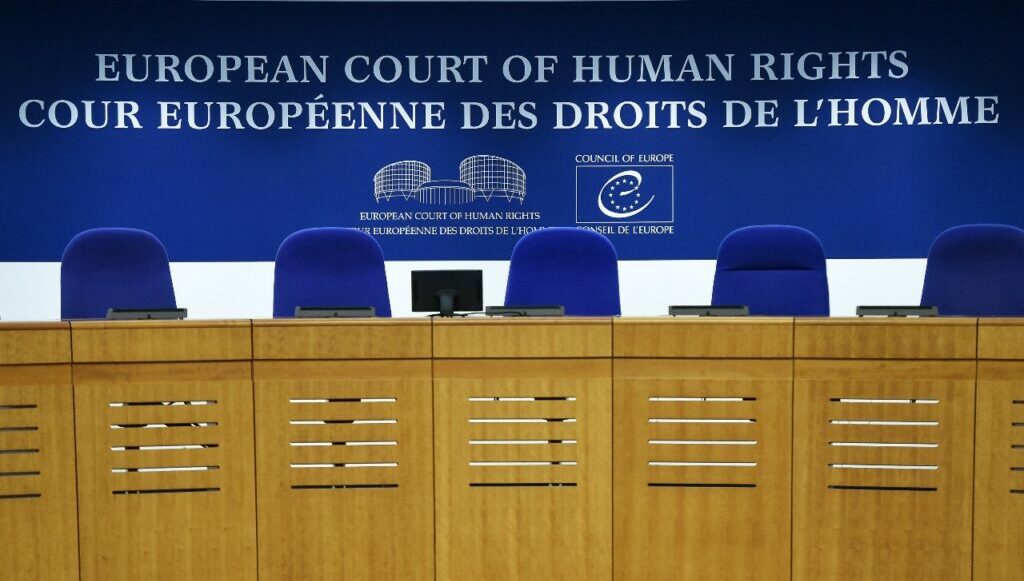In 2016, the Turkish government declared a state of emergency following an unsuccessful coup attempt. This state of emergency remained in effect until 2018. During this period, the government carried out a purge of civil servants under the pretext of fighting the coup. They issued a number of government decrees, known as KHKs, which resulted in the dismissal of 130,000 public servants due to their alleged connections to “terrorist organizations.”
The documentary, directed by Nejla Demirci, focuses on the struggles of two individuals, Yasemin, a doctor, and Engin, a teacher, who lost their jobs through KHK decrees. The film highlights their efforts to rebuild their lives after being dismissed from their public sector jobs.
Münir Korkmaz, a reporter for KHK TV, a YouTube channel created by victims of the post-coup purge in Turkey, commented on the removal of the film from the festival. He said, “We do not accept this attitude and strongly condemn it. This film was about the honorable struggle of KHK victims. We demand its reinstatement among the competing films.”
Turkish film director Ezel Akay described the removal as a “big mistake” and called for the festival to reverse its decision. Actor, director, and writer Orhan Alkaya also expressed his disapproval, stating, “Those responsible for the removal should ‘curl up and die—if they can feel shame.'”
The Altın Portakal Film Festival is organized by the Antalya Metropolitan Municipality, which is run by the main opposition Republican People’s Party (CHP) and the Antalya Culture and Art Foundation. The documentary had previously been the subject of a ruling by the Constitutional Court last year. The court found that the local authorities’ ban on filming violated freedom of expression, and awarded Demirci compensation in the amount of 13,500 Turkish lira.
The Grand Chamber of the European Court of Human Rights (ECtHR) on Tuesday ruled that Turkish courts’ conviction of a teacher of terrorism over activities such as the use of a mobile application or having an account at a certain bank was unlawful, in a decision that could have far-reaching implications for thousands facing similar charges in Turkey.
The ECtHR faulted Turkey due to violations of three articles of the European Convention on Human Rights (ECHR): Article 6, which concerns the right to a fair trial; Article 7 on no punishment without law; and Article 11 on freedom of assembly and association.
The court ruled that Turkey pay Yalçınkaya 15,000 euros for costs and expenses.
Teacher Yüksel Yalçınkaya was convicted of membership in a terrorist organization and sentenced to six years, three months’ imprisonment in 2017 by a high criminal court due to his links to the Gülen movement. The court based its ruling on his alleged use of the ByLock app, membership in a labor union and an association affiliated with the Gülen movement and having an account at Bank Asya. Yalçınkaya’s sentence was upheld by the Supreme Court of Appeals in October 2018.
The Turkish Constitutional Court also rejected as inadmissible an application lodged by Yalçınkaya.
The court criticized Turkey’s use as evidence of the encrypted messaging app “ByLock” as broad and arbitrary, lacking necessary safeguards for a fair trial. Additionally, the court pointed out significant procedural deficiencies in Yalçınkaya’s trial, including not granting him access to evidence or allowing independent examination of data.
The ECtHR also noted that Turkish authorities used Yalçınkaya’s legal membership in a trade union as evidence against him, thereby violating his right to freedom of assembly and association under Article 11. The decision has broader implications for similar cases in Turkey, emphasizing the need for legal proceedings to align with European human rights standards.
The ruling will likely have an impact on the conviction or trial of thousands of people who face terrorism charges due to their affiliation with the Gülen movement, a faith-based group accused by the Turkish government of masterminding a failed coup in 2016 and labeled as a terrorist organization. The movement strongly denies involvement in the abortive putsch or any terrorist activity.
The Yalçınkaya judgment comes as a stark departure from prior cases like those of philanthropist businessman Osman Kavala and Kurdish leader Selahattin Demirtaş, which focused primarily on detention decisions. In contrast, this case addresses the merits of conviction.
Following the coup attempt, the Turkish government accepted such activities as having an account at the now-closed Bank Asya, one of Turkey’s largest commercial banks at the time; using the encrypted ByLock messaging application, which was available on Apple’s App Store and Google Play; and subscribing to the Zaman daily or other publications affiliated with members of the movement as benchmarks for identifying and arresting alleged followers of the Gülen movement on charges of membership in a terrorist organization.
More than 130,000 public servants were removed from their jobs in a massive purge launched by the Turkish government following the coup attempt on the grounds that they had links to terrorist organizations. Yalçınkaya was one of them.
During the grand chamber gathering in January, Yalçınkaya’s lawyers, Johan Heymans and Vande Lanotte, said in their defense statements that the prosecution of their client was an obvious sign of the violation of human rights in Turkey. The lawyers said ByLock was available on Apple Store and Google Play and that downloading this app would not make anyone a criminal. The lawyers also said there are thousands of ruling Justice and Development Party (AKP) supporters who downloaded this app but have not faced any prosecution.
The ECtHR already found the use of ByLock not to constitute a criminal offense as it ruled in July 2021 in the case of former police officer Tekin Akgün that the use of the ByLock application is not an offense in itself and does not constitute sufficient evidence for an arrest.
Yet, despite the ECtHR ruling, detentions and arrests based on ByLock use continue unabated in Turkey.
According to Yalçınkaya’s lawyers, Turkish intel agency MİT collected intelligence on ByLock users unlawfully without a court decision, and their client used the app for a short time in 2015.
As stipulated by Article 311/1-f of the Code of Criminal Procedure and Article 90 of the Turkish Constitution, the ECtHR’s judgment of violation will be grounds for a retrial for Yalçınkaya. If the unlawful evidence is dismissed, as is likely, an acquittal could be the result.
Turkey now faces a legal conundrum. The ruling mandates that the judgment must be implemented not just for Yalçınkaya but for everyone in a similar situation, an effect known as the objective effect of the judgment. This decision is expected to lead to a series of retrials and potentially significant legal reforms within Turkey. If not addressed, it may put Turkey under financial strain and impact its reputation in international human rights circles.
Observers note that the execution of this judgment is to be monitored by the Committee of Ministers of the Council of Europe, increasing the pressure on Turkey to make meaningful changes.
Turkey was ranked 116th among 140 countries in the rule of law index published by the World Justice Project (WJP) in October 2022. The country saw the purge of more than 4,000 judges and prosecutors following the coup attempt. The purge of so many members of the judiciary is seen by many as an attempt by President Recep Tayyip Erdoğan to redesign the Turkish judiciary and fill it with pro-government judges and prosecutors.
Following the abortive putsch, the Turkish government declared a state of emergency and carried out a massive purge of state institutions under the pretext of an anti-coup fight. More than 130,000 public servants, including 4,156 judges and prosecutors, as well as 24,706 members of the armed forces, were summarily removed from their jobs for alleged membership in or relationships with “terrorist organizations” by emergency decree-laws subject to neither judicial nor parliamentary scrutiny.
According to a statement from then-interior minister Süleyman Soylu on July 5, 2022, a total of 332,884 had been detained, while around 101,000 others had been jailed due to alleged links to the Gülen movement, a faith-based group outlawed by Ankara, since the failed coup. The minister said there were 19,252 people in Turkey’s prisons at the time who were jailed on alleged links to the movement while 24,000 others were at large.
In addition to the thousands who were jailed, scores of other Gülen movement followers had to flee Turkey to avoid the government crackdown.
Some of these people had to take illegal and risky journeys in boats to Greece because their passports had been revoked by the government.
Bünyamin Tekin, Strasbourg
Source: Turkish Minute



